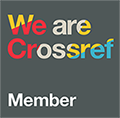Special Education Teachers' Experiences of Using Assistive Technology
DOI:
https://doi.org/10.33308/26674874.2024382618Keywords:
Assistive Technology, Special Education Teachers, Advantages of Assistive Technology, Disadvantages of Assistive TechnologyAbstract
This study aimed to determine special education teachers’ experiences in utilizing assistive technologies. The limited number of studies determining the experiences of special education teachers regarding the use of assistive technologies constitutes the rationale for this study. Eight teachers (six male and two female) participated in this descriptive study. The data obtained within the scope of this research were collected using semi-structured interviews and analyzed using a content analysis technique. The research findings were as follows: the types of assistive technologies that teachers use in their classrooms and the purposes of their use, their access to these technologies, the disability groups of the students for whom they use assistive technologies and the courses used, the points they pay attention to when using assistive technologies, their competence in using assistive technologies, the training they received regarding using assistive technologies, advantages and disadvantages of assistive technologies for teachers and students, and their suggestions. The findings of this study are consistent with those in the literature.
Downloads
References
Alammary, J., Al-haıkı, F., & Al-muqahwi, K. (2017). The impact of assistive technology on down syndrome students in Kingdom of Bahrain. The Turkish Online Journal of Educational Technology, 16(4), 103-119.
Alnahdi, G. (2014). Assistive technology in special education and the universal design for learning. Turkish Online Journal of Educational Technology-TOJET, 13(2), 18-23.
Aslan, C. (2018). Özel eğitim öğretmenlerinin yardımcı teknolojilere yönelik tutumları. Eğitim Teknolojisi Kuram ve Uygulama, 8(1), 102-120. https://doi.org/10.17943/etku.319972 DOI: https://doi.org/10.17943/etku.319972
Aslan, C., & Kan, A. (2017). Yardımcı teknolojilere yönelik tutum ölçeği geliştirme çalışması. Abant İzzet Baysal Üniversitesi Eğitim Fakültesi Dergisi, 17(1), 48-63. https://doi.org/10.17240/aibuefd.2017.17.28551-304620 DOI: https://doi.org/10.17240/aibuefd.2017.17.28551-304620
Avcıoğlu, H. (2012). Zihin engelliler sınıf öğretmenlerinin araç-gereç kullanımına ilişkin görüşleri. International Journal of New Trends in Arts, Sports & Science Education, 1(2), 118-133.
Bahceci, B. (2019). Özel eğitim alanında çalışan öğretmenlerin yardımcı teknolojilere yönelik tutumlarının ve bireysel yenilikçilik düzeylerinin incelenmesi [Yayınlanmamış doktora tezi]. Necmettin Erbakan Üniversitesi.
Bausch, M. E., & Ault, M. J. (2008). Assistive technology implementation plan: A tool for improving outcomes. Teaching Exceptional Children, 41(1), 6-14. https://doi.org/10.1177/004005990804100101 DOI: https://doi.org/10.1177/004005990804100101
Bayrak, N., & Bayrak, G. (2021). Eğitimde teknoloji kullanımı içerikli hizmet içi eğitim kurslarının öğretmenlerin teknolojik pedagojik alan bilgisi özgüvenine etkileri. Van Yüzüncü Yıl Üniversitesi Eğitim Fakültesi Dergisi, 18(1), 1009-1041. https://doi.org/10.33711/yyuefd.957385 DOI: https://doi.org/10.33711/yyuefd.957385
Çakmak, S., Şafak, P., Karakoç, T., Çitil, M., Küçüközyiğit, M.S., Aslan, C., & Yılmaz, H.C. (2016). Özel eğitim ve yardımcı teknolojiler. Vize Yayıncılık.
Çay, E., Yıkmış, A., & Sola Özgüç, C. (2020). Özel eğitimde teknoloji kullanımına ilişkin özel eğitim öğretmenlerinin deneyim ve görüşleri. Eğitimde Nitel Araştırmalar Dergisi – Journal of Qualitative Research in Education, 8(2), 629-648. https://doi.org/10.14689/issn.2148-624.1.8c.2s.9m DOI: https://doi.org/10.14689/issn.2148-624.1.8c.2s.9m
Coleman, M. B., Cramer, E. S., Park, Y., & Bell, S. M. (2015). Art educators’ use of adaptations, assistive technology, and special education supports for students with physical, visual, severe and multiple disabilities. Journal of Developmental and Physical Disabilities, 27(5), 637-660. https://doi.org/10.1007/s10882-015-9440-6 DOI: https://doi.org/10.1007/s10882-015-9440-6
Connor, C., Snell, M., Gansneder, B., & Dexter, S. (2010). Special education teachers’ use of assistive technology with students who have severe disabilities. Journal of Technology and Teacher, Education, 18(3), 369-386. https://www.learntechlib.org/primary/p/28334/.
Cresswell, J. W. (2016). Araştırma deseni: Nitel, nicel ve karma yöntem yaklaşımları (Çev. S. B. Demir) (2nd Ed.). Eğiten Kitap.
D’Andrea, F. M., & Siu, Y. T. (2015). Students with visual impairments: Considerations and effective practices for technology use. In D. L. Edyburn (Ed.) Efficacy of Assistive Technology Interventions (pp. 111-138). Bingley: Emerald Group Publishing Limited. https://doi.org/10.1108/S2056-769320150000001005 DOI: https://doi.org/10.1108/S2056-769320150000001005
Dexter, S., & Riedel, E. (2003). Why improving preservice teacher educational technology preparation must go beyond the college's walls. Journal of Teacher Education, 54(4), 334-346. https://doi.org/10.1177/0022487103255319 DOI: https://doi.org/10.1177/0022487103255319
Edyburn, D. L. (2000). Assistive technology and students with mild disabilities. Focus on Exceptional Children, 32(9), 1-24. DOI: https://doi.org/10.17161/fec.v32i9.6776
Eldeniz Çetin, M., & Geçal, İ. (2017). Zihinsel yetersizliği olan öğrencilerle çalışan öğretmenlerin eğitimde teknoloji kullanımına yönelik görüşleri ve önerilerinin belirlenmesi. Akademik Sosyal Araştırmalar Dergisi, 5(52), 624-635. http://dx.doi.org/10.16992/ASOS.12631 DOI: https://doi.org/10.16992/ASOS.12631
Erdem, R. (2017). Students with special educational needs and assistive technologies: A literature review. Turkish Online Journal of Educational Technology-TOJET, 16(1), 128-146.
Flanagan, S., Bouck, E. C., & Richardson, J. (2013). Middle school special education teachers’ perceptions and use of assistive technology in literacy instruction. Assistive Technology, 25(1), 24-30. https://doi.org/10.1080/10400435.2012.682697 DOI: https://doi.org/10.1080/10400435.2012.682697
Genc, Z., Babieva, N. S., Zarembo, G. V., Lobanova, E. V., & Malakhova, V. Y. (2021). The views of special education department students on the use of assistive technologies in special education. International Journal of Emerging Technologies in Learning, 16(19), 69-80. https://doi.org/10.3991/ijet.v16i19.26025 DOI: https://doi.org/10.3991/ijet.v16i19.26025
Hord, C., & Bouck, E. C. (2012). Review of academic mathematics instruction for students with mild intellectual disability. Education and Training in Autism and Developmental Disabilities, 47(3), 389-400. https://www.jstor.org/stable/23879973
Kaplan, A., Öztürk, M., Doruk, M., & Duran, M. (2016). Matematik dersinde bilgisayar kullanımına yönelik zihinsel engelliler ögretmenlerinin görüsleri. Hasan Ali Yücel Egitim Fakültesi Dergisi, 13(2), 73-87.
Kazu, H. & Yeşilyurt, E. (2008). Öğretmenlerin öğretim araç-gereçlerini kullanım amaçları. Fırat Üniversitesi Sosyal Bilimler Dergisi, 18(2), 175–188.
Kim, Y. W., Kim, Y. G., Kim, N. J., & Woo, Y. G. (2003). A study on the Korea teacher's perception in using assistive technology. Journal of Asia-Pacific Special Education, 3(1), 35-48.
Kurtdede-Fidan, N. (2008). İlköğretimde araç gereç kullanımına ilişkin öğretmen görüşleri. Kuramsal Eğitimbilim, 1(1), 48-61.
Kutlu, M., Schreglmann, S., & Cinisli, N. A. (2018). Özel eğitim alanında çalışan öğretmenlerin özel eğitimde yardımcı teknolojilerin kullanımına ilişkin görüşleri. Van Yüzüncü Yıl Üniversitesi Eğitim Fakültesi Dergisi, 15(1), 1540-1569. https://dx.doi.org/10.23891/efdyyu.2018.115 DOI: https://doi.org/10.23891/efdyyu.2018.115
Lee, Y., & Vega, L. A. (2005). Perceived knowledge, attitudes, and challenges of AT use in special education. Journal of Special Education Technology, 20(2), 60-63. https://doi.org/10.1177/016264340502000208 DOI: https://doi.org/10.1177/016264340502000208
Lowther, D. L., Inan, F. A., Daniel Strahl, J., & Ross, S. M. (2008). Does technology integration “work” when key barriers are removed? Educational Media International, 45(3), 195-213. https://doi.org/10.1080/09523980802284317 DOI: https://doi.org/10.1080/09523980802284317
Michaels, C. A., & McDermott, J. (2003). Assistive technology integration in special education teacher preparation: Program coordinators' perceptions of current attainment and importance. Journal of Special Education Technology, 18(3), 29-44. https://doi.org/10.1177/016264340301800302 DOI: https://doi.org/10.1177/016264340301800302
Miles, M. B., & Huberman A. M. (2019). Genişletilmiş bir kaynak kitap: Nitel veri analizi (Çev. Ed. S. Akbaba Altun ve A. Ersoy) (3. Baskı). Pegem Akademi.
Miliazim-Memet, N., & Şentürk, Ş. (2021). Özel eğitim öğretmenlerinin yardımcı teknoloji kullanımına ilişkin tutumları. Disiplinlerarası Eğitim Araştırmaları Dergisi, 5(10), 221-230.
Mills, G. E., & Gay, L. R. (2016). Educational research: Competencies for analysis and applications (11th Ed.). Pearson.
Murugaiyan, A., & Arulsamy, S. (2013). Attitude of student teachers towards integration of assistive technology in inclusive classrooms. International Journal of Teacher Educational Research (IJTER), 2(4), 1-8.
Ofiesh, N. S., Rice, C. J., Long, E. M., Merchant, D. C., & Gajar, A. H. (2002). Service delivery for postsecondary students with disabilities: A survey of assistive technology use across disabilities. College Student Journal, 36(1), 94-108.
Onivehu, A. O., Ohawuiro, O. E., & Oyeniran, B. J. (2017). Teachers' attitude and competence in the use of assistive technologies in special needs schools. Acta Didactica Napocensia, 10(4), 21-32. DOI: https://doi.org/10.24193/adn.10.4.3
Özdamar, O. (2016). Öğretmenlerin özel eğitim sınıflarında yardımcı teknoloji kullanımına ilişkin görüşlerinin belirlenmesi [Yayınlanmamış yüksek lisans tezi]. Anadolu Üniversitesi.
Özgüç, C. S., & Cavkaytar, A. (2016). Developing technology supported instructional activities in a class of middle school students with intellectual disability. Education and Science, 41(188), 197-226. https://doi.org/10.15390/EB.2016.6691 DOI: https://doi.org/10.15390/EB.2016.6691
Quenneville, J. (2001). Tech tools for students with learning disabilities: Infusion into inclusive classrooms. Preventing School Failure, 45(4), 167-170. https://doi.org/10.1080/10459880109603332 DOI: https://doi.org/10.1080/10459880109603332
Quinn, B. S., Behrmann, M., Mastropieri, M., Chung, Y., Bausch, M. E., & Ault, M. J. (2009). Who is using assistive technology in schools? Journal of Special Education Technology, 24(1), 1-13. https://doi.org/10.1177/016264340902400101 DOI: https://doi.org/10.1177/016264340902400101
Şahin, M. C., & Arslan-Namlı, N. (2019). Öğretmen adaylarının eğitimde teknoloji kullanma tutumlarının incelenmesi. Türkiye Sosyal Araştırmalar Dergisi, 23(1), 95-112.
Sakallı-Demirok, M., Haksız, M., & Cahit, N. (2019). Özel eğitim öğretmenlerinin yardımcı teknoloji kullanımlarına yönelik tutumlarının incelenmesi. Yaşam Becerileri Psikoloji Dergisi, 3(5), 5-12. https://doi.org/10.31461/ybpd.500699 DOI: https://doi.org/10.31461/ybpd.500699
Sani-Bozkurt, S. (2017). Özel eğitimde dijital destek: yardımcı teknolojiler. Açıköğretim Uygulamaları ve Araştırmaları Dergisi, 3(2), 37-60.
Sarıtepeci, M., Durak, H., & Seferoğlu, S. S. (2016). Öğretmenlerin öğretim teknolojileri alanında hizmet-içi eğitim gereksinimlerinin FATİH projesi kapsamında incelenmesi. Turkish Journal of Computer and Mathematics Education, 7(3), 601-620.
Sertkaya, M. F. (2021). Özel eğitim öğretmenlerinin sınıflarında teknoloji ve yardımcı teknoloji kullanımına yönelik öz-yeterlik ve tutumlarının belirlenmesi [Yayınlanmamış yüksek lisans tezi]. Necmettin Erbakan Üniversitesi.
Smith, B. R., Spooner, F., & Wood, C. L. (2013). Using embedded computer-assisted explicit instruction to teach science to students with autism spectrum disorder. Research in Autism Spectrum Disorders, 7(3), 433-443. https://doi.org/10.1016/j.rasd.2012.10.010 DOI: https://doi.org/10.1016/j.rasd.2012.10.010
Sola-Özgüç, C., & Cavkaytar, A. (2014). Teacher use of instructional technology in a special education school for students with intellectual disabilities: A case study. Turkish Online Journal of Qualitative Inquiry, 5(1), 47-59. https://doi.org/10.17569/tojqi.14394 DOI: https://doi.org/10.17569/tojqi.14394
Türel, Y. K., & Akgün, K. (2021). Zihinsel yetersizliği bulunan bireylerin matematik eğitiminde öğretim teknolojilerinin kullanımı: Bir literatür taraması. Fırat Üniversitesi Sosyal Bilimler Dergisi, 31(3), 1221-1234. https://doi.org/10.18069/firatsbed.916679 DOI: https://doi.org/10.18069/firatsbed.916679
Van Laarhoven, T., & Conderman, G. (2011). Integrating assistive technology into special education teacher preparation programs. Journal of Technology and Teacher Education, 19(4), 473-497. https://www.learntechlib.org/primary/p/33299/.
Van Netten J. J., Jannink, M. J., Hijmans, J. M., Geertzen, J. H., & Postema, K. (2010). Use and usability of custom-made orthopedic shoes. Journal of Rehabilitation Research & Development, 47(1), 73-82. https://doi.org/10.1682/JRRD.2009.08.0142 DOI: https://doi.org/10.1682/JRRD.2009.08.0142
Wehmeyer, M. L., Palmer, S. B., Smith, S. J., Davies, D. K., & Stock, S. (2008). The efficacy of technology use by people with intellectual disability: A single-subject design meta-analysis. Journal of Special Education Technology, 23(3), 21-30. https://doi.org/10.1177/016264340802300303 DOI: https://doi.org/10.1177/016264340802300303
Wong, M. E., & Cohen, L. G. (2015). Access and challenges of assistive technology application: Experience of teachers of students with visual impairments in Singapore. Disability, CBR & Inclusive Development, 26(4), 138-154. https://doi.org/10.5463/DCID.v26i4.450 DOI: https://doi.org/10.5463/dcid.v26i4.450
Yakubova, G., & Bouck, E. C. (2014). Not all created equally: Exploring calculator use by students with mild intellectual disability. Education and Training in Autism and Developmental Disabilities, 49(1), 111-126. https://www.jstor.org/stable/23880659
Yıldırım, A., & Şimşek, H. (2018). Sosyal bilimlerde nitel araştırma yöntemleri (11. Baskı). Seçkin Yayıncılık.
Downloads
Published
How to Cite
Issue
Section
License
Copyright (c) 2024 Journal of Education for Life

This work is licensed under a Creative Commons Attribution-NonCommercial-NoDerivatives 4.0 International License.
I accept that the Owner of Journal of Education for Life, the Editor, Associate Editors, Reviewers and the Editorial Board cannot be hold responsible regarding the scope, the findings, the discussion and conclusion of the manuscript submitted.
I declare to the editorship of Journal of Education for Life that the manuscript is original and has not been published anywhere else or is not under evaluation process for any other journal.
I approve that I grant Journal of Education for Life as the sole and exclusive right and license to publish for the full legal term of copyright of my manuscript concurring with article 5846 / 22-23-25 while I retain copyright in the work.





